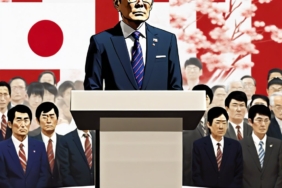The Evolution of Work Culture in South Korea
“Back in the day,” reminisced Lim Hyung-kyu, a retired executive from Samsung Electronics now in his 70s, “my weeks were composed of Monday, Tuesday, Wednesday, Thursday, Friday, and then Friday again.” Mr. Lim, who joined Samsung, South Korea’s largest conglomerate, in 1976, ascended through the ranks to become the chief technology officer. For a significant portion of his 30-plus years at Samsung, the expectation of working on weekends was commonplace — and even permissible under the country’s labor laws. “I didn’t mind,” he reflected. “It was genuinely enjoyable for me.”
However, the landscape has transformed dramatically in recent years. Current South Korean labor regulations impose a ceiling on working hours at 52 per week: 40 standard hours, with an allowance of up to 12 hours of overtime. Weekends are now generally regarded as off-limits for most employees, and younger workers are increasingly prioritizing their work-life balance, a stark contrast to the attitudes of their parents and grandparents.
In a surprising turn of events, over the past few months, several prominent South Korean companies have begun instructing their executives to extend their working hours. In some instances, employees have been directed to report to the office six days a week. Observers within the South Korean business community suggest that this trend may create a ripple effect, pressuring lower-ranked employees and managers at smaller firms to conform to similar expectations.
“This sends a clear message that in South Korea, the notion of working six days a week remains socially acceptable,” stated Kim Seol, a representative from the Youth Community Union, an organization advocating for workers aged 15 to 39.
The pressure on workers, particularly among the younger demographic, can be overwhelming in South Korea. The nation is grappling with a shrinking and aging population, characterized by one of the world’s lowest fertility rates. Concerns about job security, coupled with escalating costs of housing, childcare, and education, have deterred many working-age Koreans from starting families, exacerbating a demographic crisis that poses significant challenges for the economy.


















